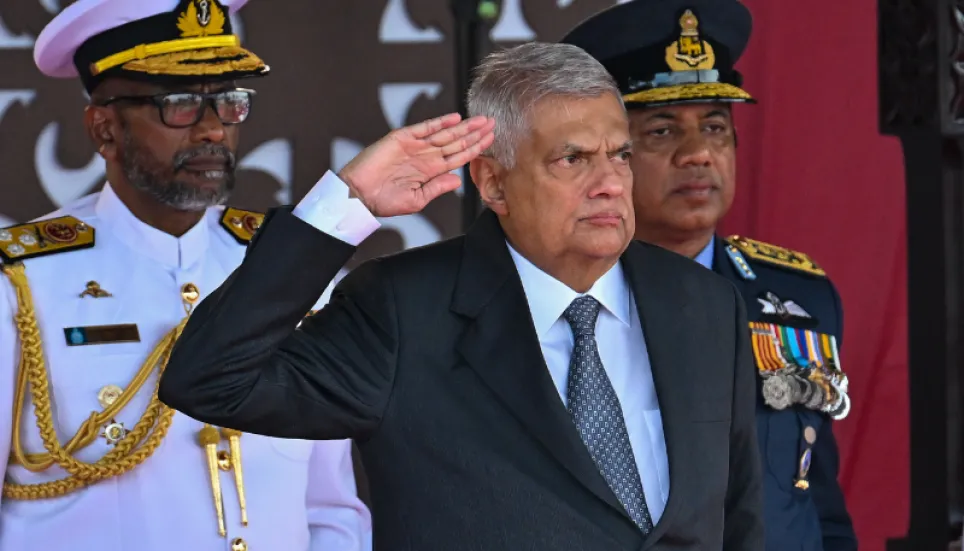
Sri Lanka's president said Wednesday the island nation will remain bankrupt for at least three more years as he works to repair battered government finances following an unprecedented economic crisis.
Ranil Wickremesinghe took office last year at the peak of national unrest sparked by months of food, fuel and medicine shortages.
He has since pushed through tax hikes and negotiated with international creditors after a default on Sri Lanka's foreign debt to clear the way for a sorely needed IMF bailout.
"If we continue according to this plan, we can rise out of bankruptcy by 2026," he said during an address to parliament urging support for economic reforms.
"Introducing new tax policies is a politically unpopular decision. Remember, I'm not here to be popular. I want to rebuild this nation from the crisis it has fallen into."
Wickremesinghe said last month that the economy may have contracted by up to 11 per cent in the last calendar year, when Sri Lanka's foreign exchange reserves dried up and left traders unable to import vital goods.
But on Wednesday he said the economy would return to growth by the end of 2023 as new revenue measures boosted government coffers.
Tax increases and the removal of fuel and electricity subsidies have been unpopular among Sri Lanka's public, already hit hard by the crisis and rampant inflation.
Wickremesinghe's policy address took place at the same time as a huge trade union strike, with air traffic controllers, doctors and several other industries staging work stoppages.
The president said Sri Lanka had reached the final stage of IMF discussions to secure a preliminary $2.9 billion bailout.
The process has been delayed by protracted debt restructure negotiations with China and other major creditors.
Wickremesinghe said Sri Lanka was in direct discussions with China about its outstanding debt but had received "positive responses from all parties" and was working towards a final agreement.